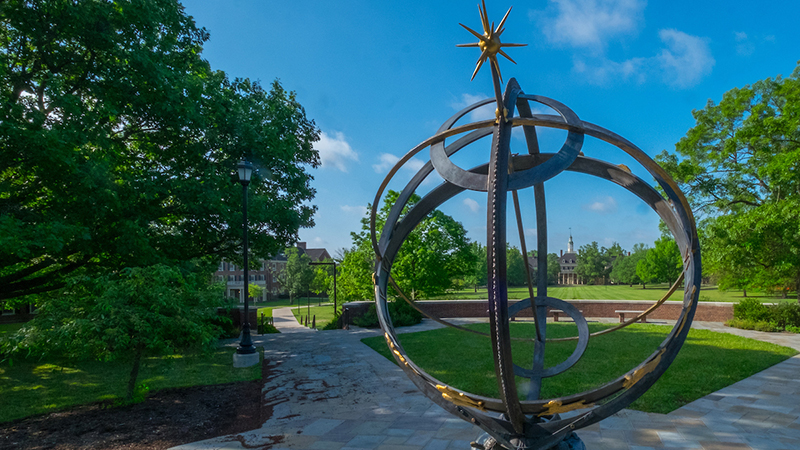
Miami University trustees approve budget for fiscal year 2020-2021
Tuition set for incoming class; four new degree programs approved
 In the first-ever virtual meeting of the Miami University board of trustees on Friday, June 19, Chair David Budig began by honoring Juneteenth, a day marking the end of slavery in the United States. Budig said recent killings, violence and acts of racism and hate have shown how far we have to go to end racism and bigotry against Black Americans.
In the first-ever virtual meeting of the Miami University board of trustees on Friday, June 19, Chair David Budig began by honoring Juneteenth, a day marking the end of slavery in the United States. Budig said recent killings, violence and acts of racism and hate have shown how far we have to go to end racism and bigotry against Black Americans.
Budig announced that Miami would close at 2 p.m. to commemorate Juneteenth. He also announced a $250,000 gift from an alumnus to support the university’s efforts to address prejudice, bigotry and racism.
The trustees then heard from the co-chairs of the Safe Return to Campus Committee about planning for Miami to resume on-campus instruction beginning Aug. 17. The board acknowledged the great uncertainty regarding the COVID-19 virus and the need for the university to remain flexible in its planning.
President Greg Crawford reported on Miami’s planning for the future, focused on providing an exceptional educational experience and preparing students to succeed and lead in an increasingly complex world while remaining affordable. “We will strategically invest in programs that improve the health of our campuses and communities and position our graduates for success – continuing Miami’s legacy of excellence,” he said.
Four new degree programs approved
As an example of those investments in Miami’s future, trustees approved four new degree programs: bachelor’s degrees in digital commerce and sales management in the College of Liberal Arts and Applied Science at Miami Regionals, a bachelor’s degree in robotics engineering in the College of Engineering and Computing, and a master’s degree in entrepreneurship and emerging technology in the College of Creative Arts.
Miami announced that it sold $125 million in university bonds earlier in the week for the construction of academic buildings in support of new academic programming. New and expanded academic programs at Miami include nursing and other health professions, robotics, business analytics and medical humanities. Construction is expected to commence early next year on a clinical health sciences building, followed by construction of a new digital innovation building, once the project is approved by the trustees.
Senior Vice President for Finance and Business Services David Creamer reported on the impact of COVID-19 on the current fiscal-year budget and its estimated impact for the 2020-2021 fiscal year that begins July 1. Miami was well-positioned to weather the initial round of unexpected COVID costs: the refund of more than $26 million in room, board and other fees to students, and a 15.2% reduction in Ohio support through the State Share of Instruction (SSI) for the last quarter of 2019-2020. Miami also paused most infrastructure projects, reduced hiring, limited expenditures and received $12,989,033 in federal CARES Act money, one-half of which ($6,494,517) is directly allocated to emergency financial-aid grants for students.
To provide additional assistance to students impacted directly by the outbreak, Miami established an Emergency Needs Fund and has received donations totaling more than $720,000. University leadership also voluntarily reduced their salaries for the benefit of Miami students.
Miami's Tuition Promise
Under Miami’s Tuition Promise, undergraduate costs including tuition, room, board and fees are set at the time a student enters Miami and frozen for the student’s entire four years as an undergraduate.
Miami trustees approved a 2% increase in undergraduate tuition for the fall 2020 incoming class on the Oxford campus. Tuition for Miami Regionals incoming students will increase by 4% for Ohio students. Graduate tuition will also increase 2%.
Increased funding for student scholarships and financial aid will continue to make a Miami education affordable, including for those impacted by the COVID-19 outbreak, President Crawford said.
Because of the acceleration of previously planned budget reallocations and reductions that occurred in 2019-2020, the university will realize annual savings of $18.9 million for the 2020-2021 fiscal year. Due to anticipated additional COVID-related expenses, reductions in SSI support for Ohio students, declining international student enrollment and increased financial aid for the incoming class, Miami will need to reduce its 2020-2021 operating budget by an additional $38 million, assuming a return to face-to-face instruction in the fall.
President Crawford shared his values-based plan to address the budget reduction by making strategic choices: requiring some divisions, including Intercollegiate Athletics and University Advancement, to become more self-sustaining and entrepreneurial; and making minor readjustments to divisions including Student Life, Enrollment Management and Student Success, and University Communications and Marketing. More detailed plans will be shared with the university community during the summer.
Trustees also heard a report from Brent Shock, vice president for enrollment management and student success, and Bethany Perkins, director of admission, on the large and talented first-year class coming this fall. Miami has received more than 4,160 confirmations for the Oxford campus, the second-largest class in its history.
